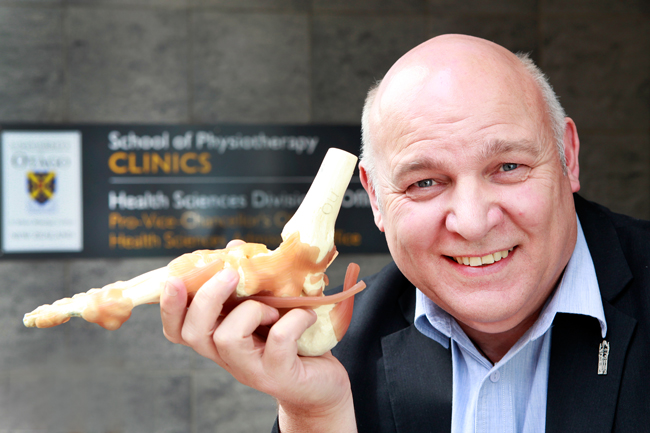Overview
The hypothalamus controls, monitors and integrates the ANS and is integral to the stress reactions and healing responses of humans.
Manual therapy techniques including joint manipulation, mobilisation, soft tissue techniques and exercise based interventions all have the potential to influence the ANS and therefore the hypothalamus, thus providing a way to modify our response to pain, stress or injury.
This area of research looks at the neurophysiological and neuroendocrine mechanisms of manual therapy and the possible application of such interventions.
This research area has interest for those interested in non-pharmacological methods to modify neurophysiological and neuroendocrine functions to have an influence on stress and healing, and be of particular relevance to physiotherapists, osteopaths, chiropractors, exercise physiologists, physiologists and psychologists.
Research team
Team lead
Dr Steve Tumilty steve.tumilty@otago.ac.nz
Co-investigators:
Associate Professor Ramakrishnan Mani
Associate Professor Jim Cotter
Professor David Baxter
Dr Kesava Kovanur Sampath
Dr Angela Spontelli-Gisselman
Graduate research students
Gerard Farrel
Events
Research week 2015 - Manual Therapy influences on the Autonomic Nervous System Symposium
This session looked at the neurophysiological and neuroendocrine mechanisms of manual therapy and the possible application of such interventions.
Dr Steve Tumilty (School of Physiotherapy)
Tendinopathy
Non-Mechanical Effects of Manual Therapy
Dr Karl Iremonger (Dept of Physiology)
Hypothalamic circuits controlling stress
Kesava Sampath (Phd candidate, School of Physiotherapy)
Neurophysiological and Neuroendocrine changes after Manipulation of the Thoracic Spine
Angela Spontelli-Gisselman (PhD candidate, School of Physiotherapy)
Measuring Heart Rate Variability in Elite Athletes

